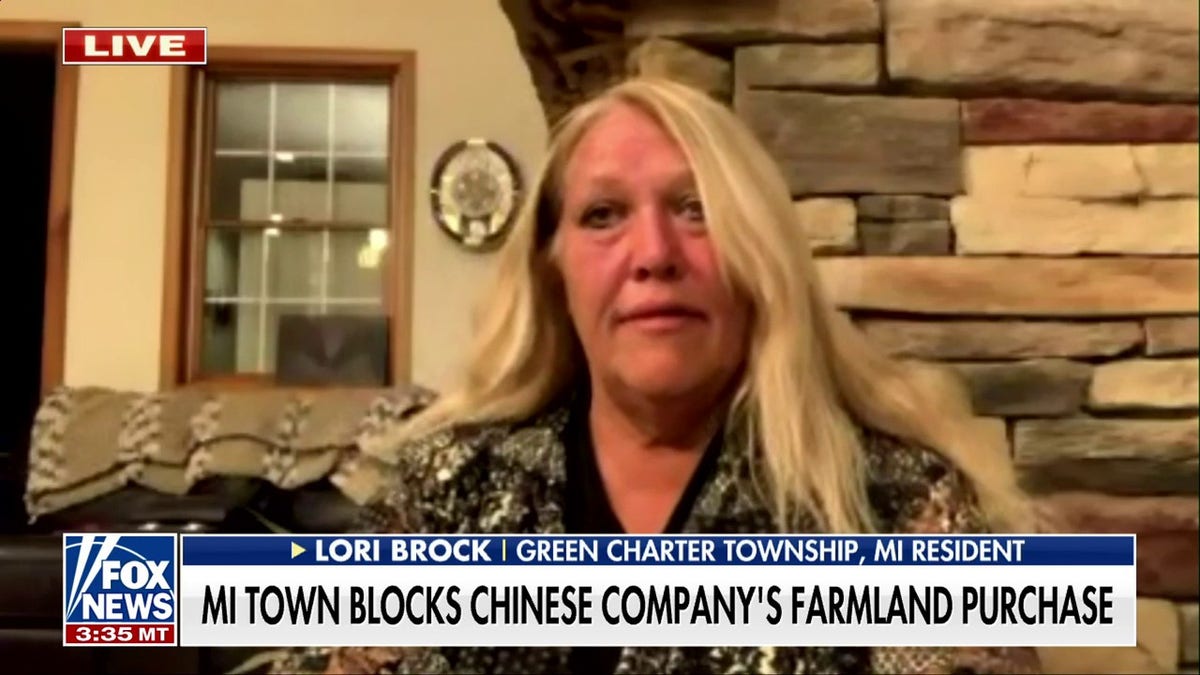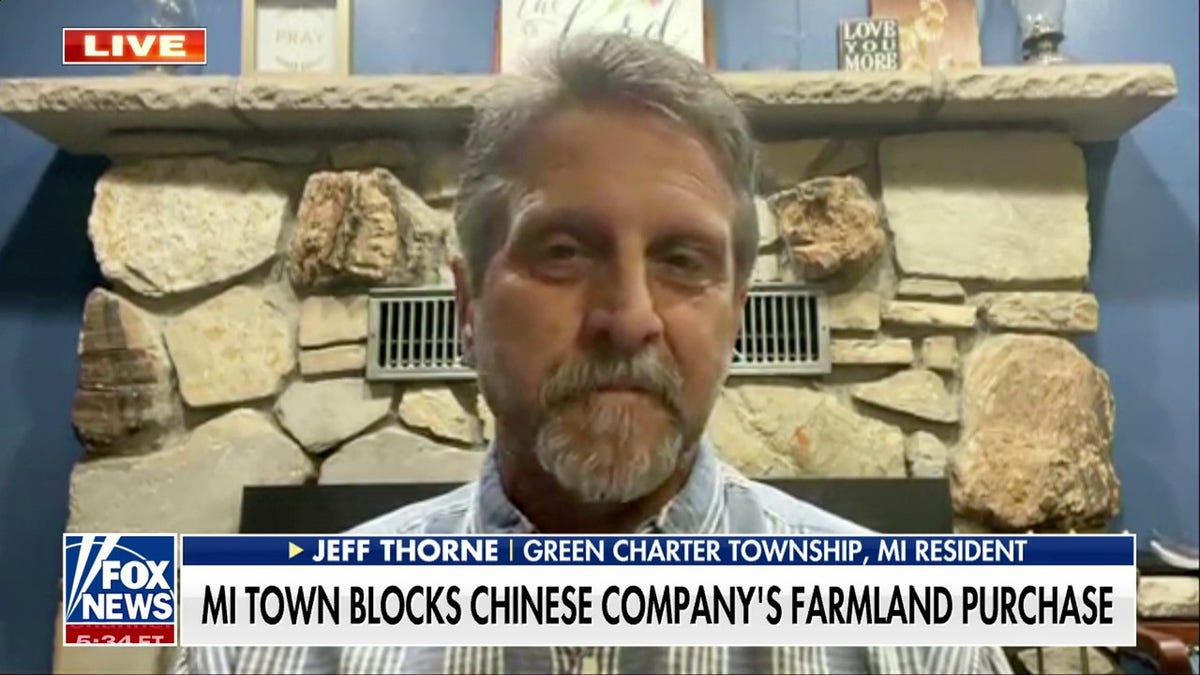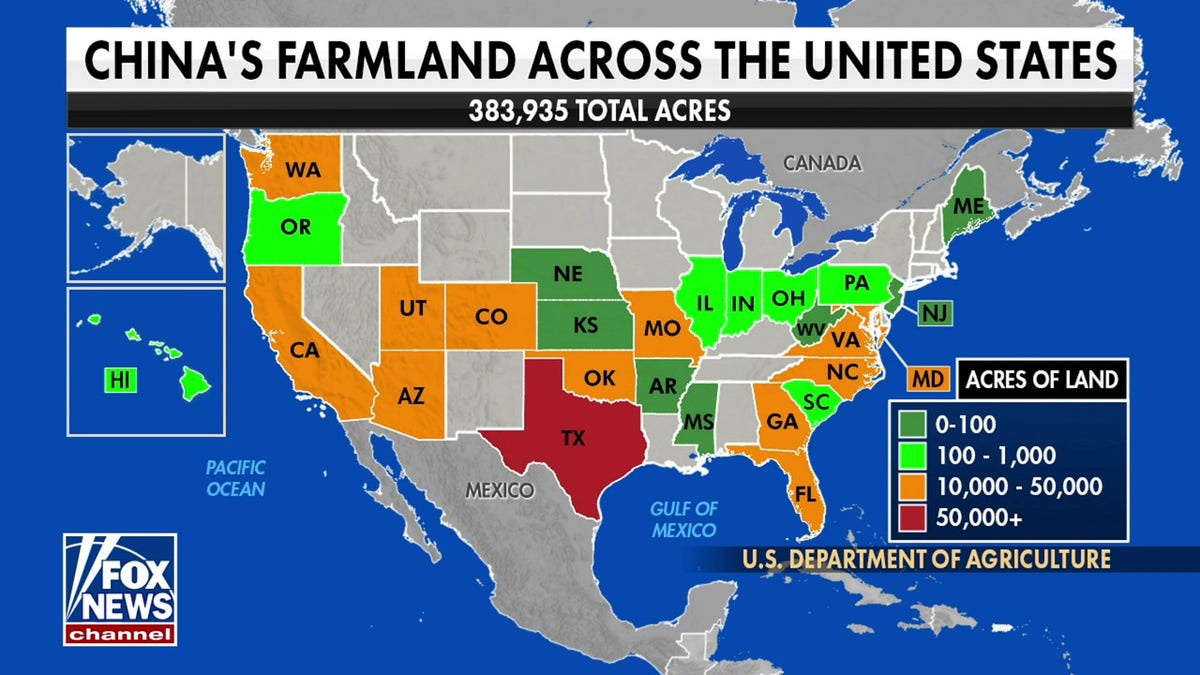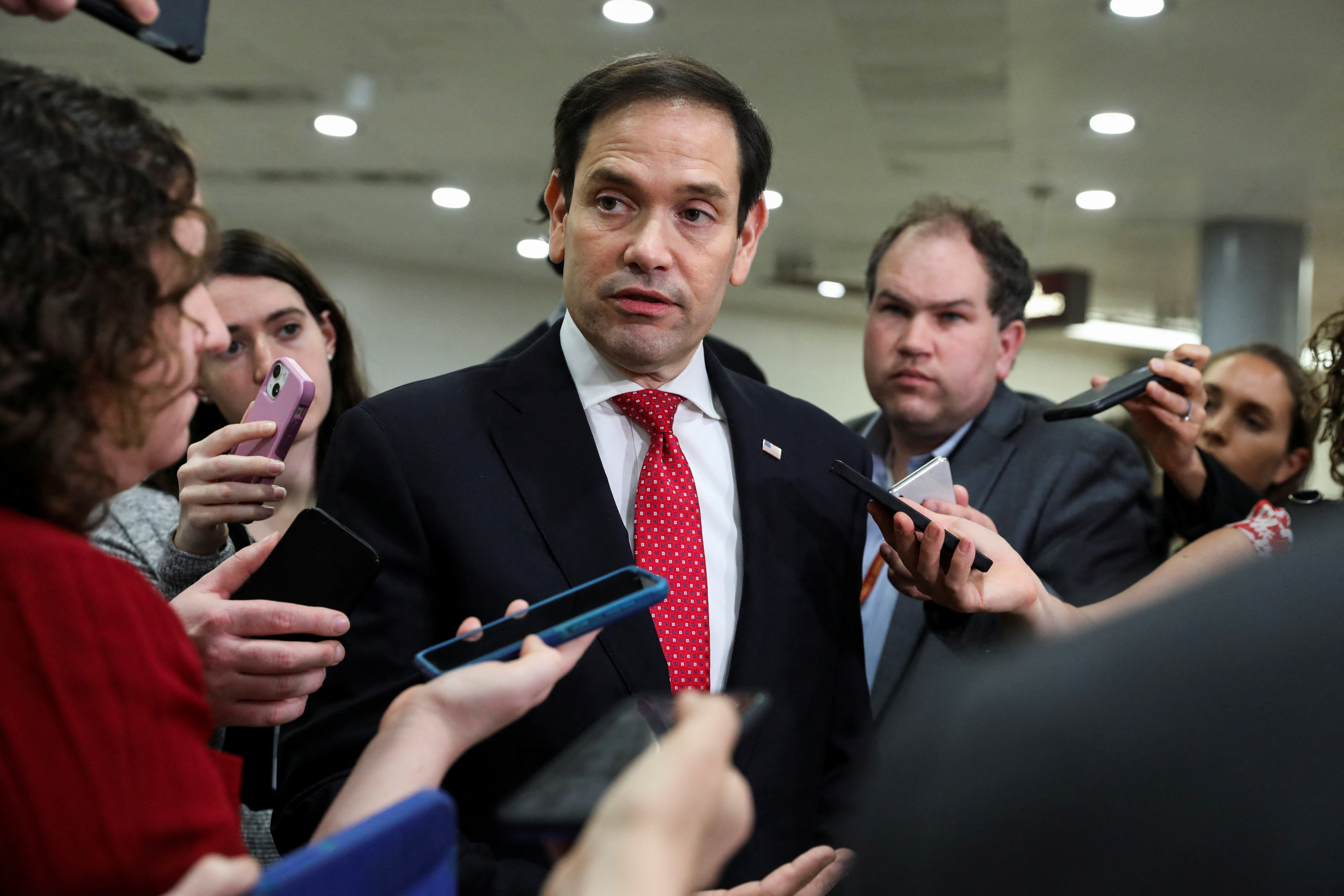WOW, what a great turn of events!! GO MICHIGAN, my home state! What a testament to what can be accomplished when the people take a stand.
If you are not aware of this story, I am so glad to be the one to share it with you. When our government, our elected officials fail to do what is right, when they continue to be motivated by greed and they participate in corruption, when they fail to listen to the voice of the people…it is TIME TO TAKE A STAND! We outnumber those folks, they know it! But, they have become immune to our complaints because we have failed to back up our complaints with action.
Green Charter Township, Michigan’s residents had enough!! When they were ignored by their local government, they showed up at the poles and booted them out, took the keys and locked the doors. They will have a whole new government tomorrow. Hurray for them!!
People need to wake up! Our nation is being taken from us without a fight!! SO, what are we sending our best and strongest men and women all over the world to defend??? What are we to say to those who gave up everything to fight for our country. Those who come home without their limbs, or suffering mentally and emotionally from the burden they carried for us, or those families whose sons and daughters did not get to come home?
We just let our country fall apart from the inside and be divided up by foreigners?? THE USA is the greatest, free nation that ever existed. Do we not care enough to keep it?
spacer
Welcome to the Future – China the MODEL Government
CHINA CONTROLS OUR MEDS?? – THAT IS INSANE!!
China vs USA
CHINA / USA
Chinese Police Establishing Presence in the USA? Are they hoisting the “Red” Flag?
spacer
Michigan town stops Chinese company’s farmland purchase in its tracks: ‘Fighting them every step of the way’
National Black Farmers Association President John Boyd Jr., former gubernatorial candidate Tudor Dixon and Michigan residents Jeff Thorne and Lori Brock weigh in on the community’s successful attempt to block a Chinese company’s farmland purchase.
A Michigan community has successfully blocked a Chinese energy company’s latest attempt to purchase two parcels of farmland in Green Charter Township, but despite the victory, residents say the fight is still far from over.
“We’ve got a small win here,” local Lori Brock, who helped lead the fight against the purchase, told “Fox & Friends First” Monday. “It was because we didn’t get any help from Michigan, but we called the federal EPA, and the federal EPA came up here and they and they got back some of the land for us.”
However, a company representative, in an email to Fox News, said, “Lori Brock’s statements about the EPA’s involvement in Gotion Inc.’s decision not to purchase farmland is categorically false.”
“Gotion Inc. decided not to purchase the farmland after listening to the concerns of local residents. The EPA had nothing to do with the company’s decision,” they added.
BIDEN ADMIN GREEN-LIGHTS CHINESE EV BATTERY FACTORY IN MICHIGAN, DESPITE LOCAL OPPOSITION

Michigan resident Lori Brock helped lead the fight against Gotion’s land purchase in her area. (Fox & Friends First/Screengrab)
CCP-allied industrial company Gotion withdrew its purchase of the agricultural land after community outcry, but is moving forward with developing an EV battery factory on hundreds of acres previously purchased in Mecosta County. The Biden administration approved the project in June after a months-long national security review.
“We’re going to still continue to fight them every step of the way. We don’t want them here. So we’re going to do whatever it takes to keep them out of our community,” Brock continued.
Jeff Thorne, another resident putting up the fight, said the community pulled off the win “the American way” by standing together for the common cause, for making their voices known and refusing to back down.
“We have a say in how we live and what goes on and what doesn’t go out here,” he told co-host Ashley Strohmier.

Jeff Thorn also helped lead the effort against CCP-allied company Gotion’s purchase. (Fox & Friends First/Screengrab)
“The Biden administration said it was OK,” she said. “And yes, it should concern people that this Democrat governor came out and courted this company and then signed non-disclosure agreements around this,” seh continued, adding that media coverage gave residents the information they needed to stop the development in its tracks.

U.S. Department of Agriculture data shows Chinese land ownership in the U.S. (Fox & Friends First/Screengrab)
“They could find out that there was no environmental review of this company. They could also find out that there are direct ties to the Chinese Communist Party…” she added, “And they were even able to fight the township board that would have circumvented the system and voted to have this property rezoned had the residents not come out informed and demanded a referendum and had a local vote on that.”
The fight comes as concerns over Chinese ownership of U.S. property increase, with Chinese firms owning nearly 400,000 acres – valued at more than $2 billion – in American farmland.
U.S. Department of Agriculture data shows Chinese companies occupy more land in some states than others, with Texas ranking the highest at over 50,000 acres.
CLICK HERE TO GET THE FOX NEWS APP
John Boyd, Jr., president of the National Black Farmers Association, called the Chinese land grab a “national disgrace on behalf of the president.”
“This takes away valuable farmland from America’s farmers. So here you have nearly 385,000 acres now owned by the Chinese government, more land than the Bill Gates [owns] in this country. And this is a national security risk… China’s been caught stealing our seeds. That’s intellectual property. It’s food security, and this administration isn’t speaking out against it.”
Boyd said he has reached out to Biden to discuss the topic in a meeting, but the offer has not been accepted.
For more Culture, Media, Education, Opinion and channel coverage, visit foxnews.com/media
spacer
spacer
 |
 |
General Inquiry+1-510-249-5610 Battery Products and ESS Solutions Inquiry |
Electrolyte order and Inquiry+1-216-867-1044 Corporate Headquarter48660 Kato Rd. |
About Gotion
Located in the heart of Silicon Valley, Gotion is a fast growing energy solutions company that aims to innovate and create the next generation of battery technology.
Industries

The problem is consistent from one industry to the next. Technological advancements continue to push the boundaries on what is electrically powered and how much energy is consumed on a global scale. The question then becomes, for our industry, our company, how do we use clean and renewable energy to meet the increasing demands without breaking the bank?
Contact Gotion to learn more about the varied solutions for each industry and how we can help you with your individual needs.

Next-Generation of Energy Storage Technology
Accelerating electrified transportation and achieving sustainable development
Locations

Want to join our team? Gotion has several offices across the globe with new ones in the pipeline.
Reach out to us to learn more.
spacer
spacer
spacer
spacer
FILE PHOTO – A general view shows delegates raising their hands as they take a vote at the closing session of the 18th National Congress of the Communist Party of China at the Great Hall of the People in Beijing November 14, 2012. REUTERS/Carlos Barria/File Photo Acquire Licensing Rights
BEIJING (Reuters) – Late last month, executives from more than a dozen top European companies in China met in Beijing to discuss their concerns about the growing role of the ruling Communist Party in the local operations of foreign firms, according to three people with knowledge of the discussions.
President Xi Jinping’s efforts to strengthen the party’s role throughout Chinese society have reached the China operations of foreign companies, and executives at some of those entities don’t like the resulting demands they are facing.
The presence of party units has long been a fact of doing business in China, where party organizations exist in nearly 70 percent of some 1.86 million privately owned companies, the official China Daily reported last month.
Companies in China, including foreign firms, are required by law to establish a party organization, a rule that had long been regarded by many executives as more symbolic than anything to worry about.
One senior executive whose company was represented at the meeting told Reuters some companies were under “political pressure” to revise the terms of their joint ventures with state-owned partners to allow the party final say over business operations and investment decisions.
He said the company’s joint venture partner was pushing to amend their agreement to include language mandating party personnel be “brought into the business management organization”, that “party organization overhead expenses shall be included in the company budget”, and that posts of board chairman and party secretary be held by the same person. Changing joint venture agreement terms is the main concern, the executive said, noting that his company had thus far resisted.
“Once it is part of the governance, they have direct rights,” he said.
The State Council Information Office (SCIO), which doubles as the party spokesman’s office, told Reuters in a faxed statement that there is no interference by party organizations in the normal operating activity of joint venture or foreign-invested companies.
However, it added, “company party organizations generally carry out activities that revolve around operations management, can help companies promptly understand relevant national guiding principles and policies, coordinate all parties’ interests, resolve internal disputes, introduce and develop talent, guide the corporate culture, and build harmonious labor relations.”
“They are widely welcomed within companies,” the SCIO said. MAJOR DECISIONS
Of the 13 executives, all from different foreign companies, Reuters interviewed for this story, 8 expressed concerns about increasing demands from the party or noted increased activity from party groups. They all spoke on the condition that they and their companies not be identified given the sensitivity of discussing relations with the party.
Just two of 20 major multinationals queried by Reuters – Samsung Electronics Co Ltd <005930.KS> and Nokia – confirmed having party units in their China operations. Most did not respond to questions on the subject. Only German chemicals giant Bayer AG acknowledged participating in the meeting organized by the European Union Chamber of Commerce in China, but declined to comment on what was discussed.
Carl Hayward, general manager and director of communications at the European Chamber’s Beijing chapter, acknowledged the meeting was held to “understand from our members if party structures are being formally introduced into the governance of joint ventures.”
“We have not noted any formal change of policy that reflects this. This is as we would expect since such a change would act as a deterrent to foreign investment in China,” he said.
“REAL MUSCLE”
Under Xi, the party has sought to address the “weakening, watering down, hollowing out and marginalisation” of party leadership at state enterprises, the party’s official People’s Daily wrote in June. The paper cited an official with state-owned oil giant Sinopec as saying the company had demanded all its foreign joint venture partners “specify the requirement for party-building work” in their articles of association.
While plans to expand party organizations in foreign companies have been a quiet concern for several decades, only under Xi has “some real muscle” been put behind the goal, said Jude Blanchette, who studies the party at The Conference Board’s China Center for Economics and Business in Beijing.
A significant number of major foreign companies operate in China through joint ventures with state enterprises. Foreign business groups have complained that their members are forced to allow Chinese partners access to their technology or risk losing market access.
Many Chinese state enterprises listed on the Hong Kong stock exchange have this year altered their articles of association to give an explicit role to internal party committees.
One country head at a major European manufacturer with a southern China joint venture said that late last year it allowed a party unit to meet on company premises – after hours. The party unit asked for overtime pay to hold the meeting, which the company rebuffed. But then it also demanded the company hire more party members, and even tried to weigh in on investment decisions.
“That’s when we said this is a no-go zone. We didn’t anticipate that they would discuss investment decisions,” the manager told Reuters.
A sales and marketing head in China for a major U.S. consumer goods firm said its party cell had recently become more active, and had pushed for locating a new facility in a district where the local government was promoting investment, a move the company made.
Still, several executives with foreign companies in China said that the role of party units was benign and could help to resolve issues with officials. A party member at a U.S.-based Fortune 500 company in Shanghai said her firm’s unit was not involved in business matters and instead engaged in activities such as planting trees and sponsoring children. “They will give you some tickets to see movies together. When the State Council has a meeting and there’s some news they will send bullet points by email,” she said.
spacer
China’s companies rewrite rules to declare Communist Party ties
More mainland-listed companies acknowledge ‘Xi thought’ in corporate constitutions

The closing ceremony of the 20th National Congress of the Communist Party of China, at the Great Hall of the People in Beijing on Oct. 22. (Photo by Yusuke Hinata)
HONG KONG — China’s Communist Party congress underlined fears that President Xi Jinping is extending his grip over business and the economy — but Chinese companies were already starting to bow to Beijing’s wishes by enshrining the role of the party in their businesses.
An analysis by Nikkei Asia has found that as of Friday, more than two-thirds of the mainland-listed companies whose shares can be traded by international investors in Hong Kong — 1,029 of 1,526 companies — have articles of association that formalize the role of in-house Communist Party cells. Most have been rewritten during the Xi era.
Nikkei Asia has also identified at least 153 of those 1,029 companies as having references to Xi in their articles of association, which in effect are a company’s constitution.
Such changes reflect the substantial pressure that the party and government have started to exert during Xi’s period as China’s leader to reinforce the role of the party cells, including by amending articles of association.
“It’s clear that there’s kind of a change in trend on this over the last few years,” said Andrew Batson, lead analyst at Gavekal Dragonomics, a China-focused investment research organization based in Beijing.
Maccura Biotechnology, a manufacturer of in vitro diagnostic products, is among the latest to spell out the party’s role. The board of the Shenzhen-listed private company resolved to amend the articles of association to add a clause pledging to “provide necessary conditions for the activities for the party organization” on Oct. 24, immediately after the close of the congress.
Three days earlier Kingfa Sci. & Tech, a privately held manufacturer of plastics and materials, moved to include a virtually identical clause in its corporate constitution. Both companies are calling extraordinary meetings on Nov. 9 for shareholders’ approval.

They explained in their respective disclosures that the revisions were intended to further “upgrade the operational standard” or “improve the corporate governance structure” but did not explain how making the party’s activities official is related to these objectives.
Neither company had responded to queries by Nikkei Asia at the time of publication.
In China, all companies are obliged to set up party cells if there are at least three party members, according to the Communist Party Charter, which was amended on Oct. 22 at the close of the congress to legitimize Xi’s extended rule and articulate his political philosophies.
Chinese corporate law also states that companies “ought to provide necessary conditions for the activities of party association.”
However the requirements “for many years have been sort of ignored,” said Gavekal’s Batson. “What’s happened under Xi is that he strongly encouraged people to actually follow this requirement.”
The uptick in the number of companies openly adopting a more pro-party stance has coincided with the notion of “corporate governance with Chinese characteristics” — a reference to the country’s version of highly capitalistic socialism — being introduced by Chinese officials around 2017.

A milestone was an amendment in September 2018 by the China Securities Regulatory Commission to the corporate governance code for listed companies. The CSRC obliged all state-owned listed companies to stipulate “party-building” activities in their articles of association.
Nana Li, head of sustainability and ESG (environmental, social and governance) issues for the Asia-Pacific region at London-based Impax Asset Management, said the code had given “many foreign investors a lesson of how the Chinese market is different from many Western capital markets they are familiar with.”
As geopolitical tensions with the U.S. and the major Western countries intensify, said Li, who has closely monitored the issue during the Xi era, “This path of developing ‘corporate governance with Chinese characteristics’ is going hand in hand with China’s aim to be more self-reliant.”
The pressure on companies apparently escalated in the run-up to the landmark party congress.
Nikkei Asia researched close to 2,100 mainland-listed companies that made public disclosures on amending their articles of association since May. Of these companies 1,464, or 70%, had officially declared having in-house party cells as of Friday, and many of these declarations have been made this year.

Some have gone further to enshrine Xi in their companies’ constitutions. The shareholders of Guangzhou Restaurant Group, operator of a renowned Cantonese diner in Guangdong’s capital city, approved last month additional clauses authorizing the in-house party organization to lead the company “to be highly consistent with the party,” with “Comrade Xi Jinping as the core” in terms of political orientation. The amendment also designated the party cell to guide the company to “deeply study and thoroughly implement Xi Jinping thought on socialism with Chinese characteristics for a new era.”
The shareholders of AECC Aero-Engine Control, a Shenzhen-listed arm of key state-owned military-industrial conglomerate Aero Engine Corporation of China, also approved an amendment to its articles of association by upgrading its reference to Xi. They amended the original phrases to the one virtually identical to the Guangzhou eatery’s, while inserting a phrase to “uphold and strengthen the party’s comprehensive leadership” in the first article of the key company document.
Xi’s attempt to draw in corporate participation is reflected in the number of grassroots party organizations in China, which stood at 4.93 million at the end of last year, 17% more than at the end of 2012, when Xi took the party helm. According to official party statistics, overall membership also grew by 14% to 96.71 million during the same period.
Susumu Nishimura, associate professor at Bunka Gakuen University in Tokyo and the author of a Japanese book on Communist Party organizations published in April, believes the party’s efforts to involve companies is part of an effort to revitalize grassroots party organizations and party membership at the local level.
Based on his nine years of experience teaching at a university in the northern province of Henan until last year, the corporate governance expert believes that for many Chinese companies, openly claiming party affiliation “could just be something similar to openly supporting concepts such as sustainable development goals or corporate social responsibility.”
China under Xi has gained much control over companies, including private ones, in the past decade –– as shown by how Beijing regulators have been clamping down on the tech sector.
“If the party wants to bring influence on management of large private companies, they have many levers and tools to it — most directly by regulations,” said Thomas Gatley, senior China corporate analyst at Gavekel based in Beijing. “Consequently, they don’t really need to do work through the interior of the company. They can just tell them what they want and what they don’t want, pretty clearly from the outside.”
spacer
CHINESE OWNED PORTS RAISING CONCERNS
WATCH THE VIDEO ON THE FOX SITE ![]()


spacer
China’s Latest Land Purchase Could Pose Major U.S. Security Risk

(Charles Johnson, Lori Hays)
House Speaker Nancy Pelosi, along with other Congress members, set off on a high-profile Asia tour this week. While Pelosi’s office didn’t disclose Taiwan in the tour, her plane landed there on Tuesday.
Ahead of the meeting, China made their sentiments on the matter known through various statements and, most recently, the Chinese People’s Liberation Army conducting live-fire drills on Pingtan, an island in the Taiwan Strait, according to Jim Wiesemeyer, ProFarmer policy analyst.
Regarding the visit, China’s foreign minister spokesperson Zhao Lijian says, “The Chinese People’s Liberation Army will not sit back.” Following Lijian’s statement, China sent warplanes to the Taiwan Strait on Tuesday.
Upon Pelosi’s plane leaving Taiwan on Wednesday, China claimed it will continue it’s live-fire drills surrounding Taiwan beginning Thursday.
Meanwhile, Senator Jerry Moran (R-KS) told AgriTalk Host Chip Flory that Pelosi’s visit isn’t about seeing whether China will “stay in their box.”
“This is not about whether the Speaker can go to Taiwan,” he says. “Let’s reengage in the Pacific with the Trans-Pacific Partnership, let’s trade with our friends in the pacific, let’s get our economy in shape so that we’re a stronger country. That’s how we compete with China.”
While China raises concerns over American boots on the ground in Asia, the country continues to grow its own footprint in the U.S.
American Lands No More
USDA’s latest data shows China owns over 191,000 acres of U.S. lands, but that was before a North Dakota land sale this Spring.
A Chinese company, Fufeng Group, recently acquired 300 acres in North Dakota for $2.6 million. According to the company, it intends to establish a milling plant.

Various government officials, including North Dakota’s Governor Doug Burgum, have raised concerns over the sale.
Burgum penned a letter to U.S. Treasury Secretary Janet Yellen and U.S. Defense Secretary Lloyd Austin on Monday, requesting the Committee on Foreign Investment in the United States (CFIUS) quickly review the Fufeng Group’s purchase.
“We ask that this review process be completed with the utmost urgency to aid Grand Forks officials in their decision-making process and provide clarity on whether this land purchase has national security implications,” Burgum wrote.
Eric Chutorash, Fufeng Group USA COO, claims the company has no Chinese government ownership and all workers in the plant will be Americans. He says he “cannot imagine” anyone in the facility would partake in espionage.
“I know we’re not going to be asked to be collecting any intelligence on Grand Forks Air Force Base,” Chutorash told the Grand Forks Herald during a forum in March . “I can’t stress it any more than that. (But) me personally, I wouldn’t provide it. I don’t believe the team being built there would provide it. … Our HR director, commercial director and sales team and engineer, they’re from here – they’re not people transferred from China.”
According to Burgum, the Fufeng Group has agreed to a voluntary CFIUS filing to further explain its intentions in North Dakota. However, Chutorash claims his team would be required to state a reason for the CFIUS review when they offer consent, and they have been given no reason to request a review.
Big Trouble in Little Texas
This isn’t the first time a question has been raised in China’s stake in the U.S.
The plug was pulled on a similar wind energy project in Del Rio, Texas, in April when state officials realized two key issues:
1. The land dedicated to the wind farm is (just) miles from the Laughlin Air Force Base.
2. The Chinese company hired to carry out the job is owned by a former member of the Chinese military who has direct ties to China’s ruling communist party.
Rep. Tony Gonzales (R-TX), who unsuccessfully pushed for the Trump Administration to reconsider allowing GH America Energy—a Chinese energy company—to purchase 130,000 acres in Val Verde County, Texas, in early 2021, has sought out secondary avenues.
In April 2021, Gonzales cosponsored the Protecting Military Installations and Ranges Act of 2021, which aims to place restrictions on certain property purchases entities in Russia, China, Iran or North Korea.

The bill was referred to the Committee on Banking, Housing and Urban Affairs.
More At Stake with China
Aside from land, the U.S. government has also raised concerns over Chinese equipment’s hold on rural America.
Chinese state-supported telecom companies, Huawei and ZTE, faced scrutiny in the past when they sold equipment to Midwest providers.
While various Chinese telecom companies, including Huawei and ZTE, have been banned in the U.S. due to spying concern, removing their equipment hasn’t proven easy.
Congress dedicated $1.9 billion in 2020 to remove and replace 24,000 pieces of the Huawei and ZTE equipment in America. According to Chuck DeVore, former California assemblyman and retired lieutenant colonel in the U.S. Army Reserve, none of the equipment has been removed as carriers say the complete replacement costs will add an additional $3 billion to the price tag.
“Chinese telecommunications equipment remains a ticking timebomb,” wrote DeVore. “The time for talk is over; we need action.”
More on land and China:
Who Can Afford These Soaring Farmland Prices?
No Decision From President Biden on Lifting China Tariffs…Yet
spacer
Chinese investors’ US land holdings amount to almost twice the size of New York City, a recent government report revealed.
Chinese buyers own 384,235 acres of American soil, according to a report on foreign-held land filed last month by the US Department of Agriculture (USDA).
That number outsizes the measly 193,700 acres occupied by New York City — not to mention Microsoft billionaire Bill Gates’ own 270,000 acres of farmland.
The most recent Chinese land buyer is Fufeng Group, a food manufacturer that purchased 300 acres in North Dakota “with plans to build a wet corn milling and biofermentation plant” in 2022.
Prior to the Fufeng Group purchase, investors from China owned about 0.9% of foreign-owned agricultural land in the US, the USDA said. The land was worth $2.1 billion, Newsweek reported.


The results of the USDA report come two weeks after Andrew Hunter, an assistant secretary with the Department of the Air Force, sent a letter to North Dakota Sens. John Hoeven and Kevin Cramer discouraging the Fufeng project.
Hunter noted that the Fufeng land is located close to Grand Forks Air Force Base, which uses sensitive drone technology.
“The proposed project presents a significant threat to national security with both near- and long-term risks of significant impacts to our operations in the area,” he wrote in the Jan. 27 missive to Hoeven.

The senators issued a joint statement on Jan. 31 encouraging Grand Forks to “discontinue the Fufeng project” and “work together to find an American company to develop the agriculture project.”
With Post wires
s[acer

 To Watch the
To Watch the 



